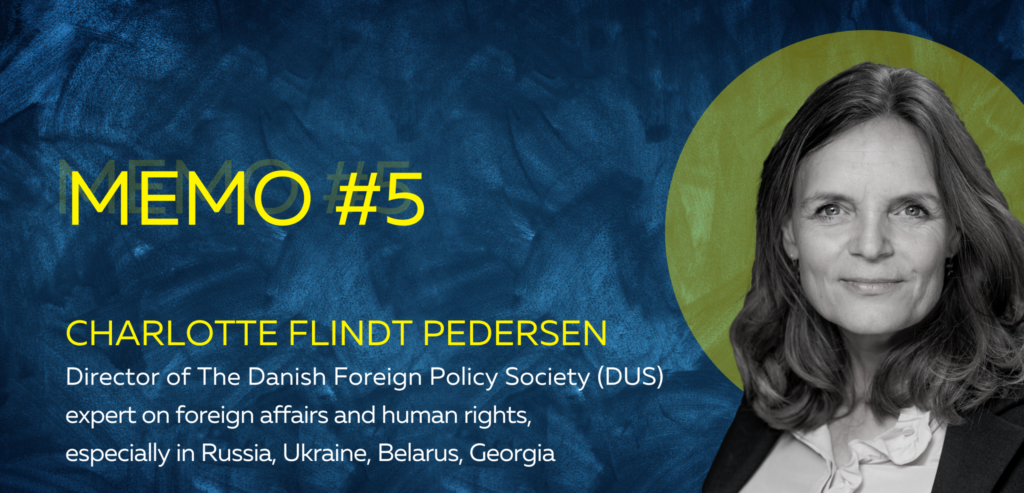“A democracy like ours doesn’t just happen. It must be constantly maintained and defended, so we must not rest on our laurels, because as we are seeing these years, even the strongest democracies can fail. ”
– Charlotte Flindt Pedersen
What characteristic of democracies deserve greater awareness or appreciation?
Read Charlotte Flindt Pedersen’s answer:
In the time just after World War II, theologian Hal Koch philosophized about the nature of democracy and was convinced that democracy is not just a system or a social form of government, but a way of life: “Understood in this way, democracy is something far more comprehensive than a particular social form of government. It is a way of life that applies to all relationships in which people interact with each other.”
According to Hal Koch, the core of democracy was “the conversation (the Dialogue) and the mutual understanding and respect that is the essence of democracy. If this fails, one will inevitably fall back into the power struggle.” (from his book: What is democracy).
Therefore, according to Hal Koch, democracy can never be secured because it is not a system to be implemented, but a way of life to be acquired. It is a mindset that must be instilled in each new generation. It is a muscle that must be trained.
For me, democracy and democratic participation is an unambiguous good. But we must be aware that there are differences between democracies and the way democratic processes are organized. The democratic process must also be able to change in line with the major societal changes that are taken place in recent years. For example, our society today is based on different interest groups than before, the information society and the speed of information, the way the outside world penetrates our society create completely new demands on democracy. But I am convinced that the parliamentary multi-party model, with certain optimizations, is suitable for handling future demands on democracy in terms of a majority of the population feel represented and included, unlike systems based on “winner takes it all” or highly centralized democracies. A basic prerequisite for a multi-party system to work is the willingness to engage in dialogue, compromise, space for reflection, representation of minority views, cross-party conversation and mutual respect. In doing so, politicians need to exercise the democratic muscle while ensuring development, policy implementation, legislation, and progress for the good of society. Creating and ensuring a good inclusive debate is an important part of the process.
It contributes to creating societies with strong institutions based on a high degree of trust and transparency, where the political system is able to reflect and therefore adjust the political initiatives continuously in line with new knowledge and in line with input from a strong and independent civil society in a broad sense and the wishes of the population specifically and the political mandate. However, it is important that thorough legislative processes, strong courts and the rule of law go hand in hand with democracy and create the experience of predictability as opposed to the experience of anarchy and ‘help yourself’ buffet that people in Russia experienced in Russian democracy of the 90s.
We have autocracies opposite democracies. In an authoritarian strongman regime, criticism becomes synonymous with personal criticism of the leader in question, be it Orban, Putin or Trump. There is no respect for the opposing viewpoint and there is no trust. The authoritarian leader often views relationships as a zero-sum game. Without the popular support of free and fair elections, the legitimacy of the system is fragile. Therefore, a university, a think tank with critical independent thinking, an independent YouTuber, and private companies with earnings not tied to the state and independent reflection are perceived as dangerous and aggressive and a threat to the political legitimacy of the authoritarian leader. A disproportionate amount of effort is spent on maintaining political power, for example by convincing the population that the country is under attack from foreign powers, hordes of immigrants or other fictitious threats.
A democracy like ours doesn’t just happen. It must be constantly maintained and defended, so we must not rest on our laurels, because as we are seeing these years, even the strongest democracies can fail.
